According to the World Financial Review Sport Tourism is one of the fastest growing segments of the travel industry today and brings significant economic benefits to the destinations that host events.
These benefits can be directly felt through spending at host facilities, hotels, restaurants, and entertainment venues, all of which stimulate the local economy because jobs are created, revenue is generated and taxes are collected.
But there are also indirect benefits say the World Financial Review, because sporting events also improve the image of a destination. This is important as it attracts future visitors and, of course, the money those visitors will bring long after a sporting event has been hosted.
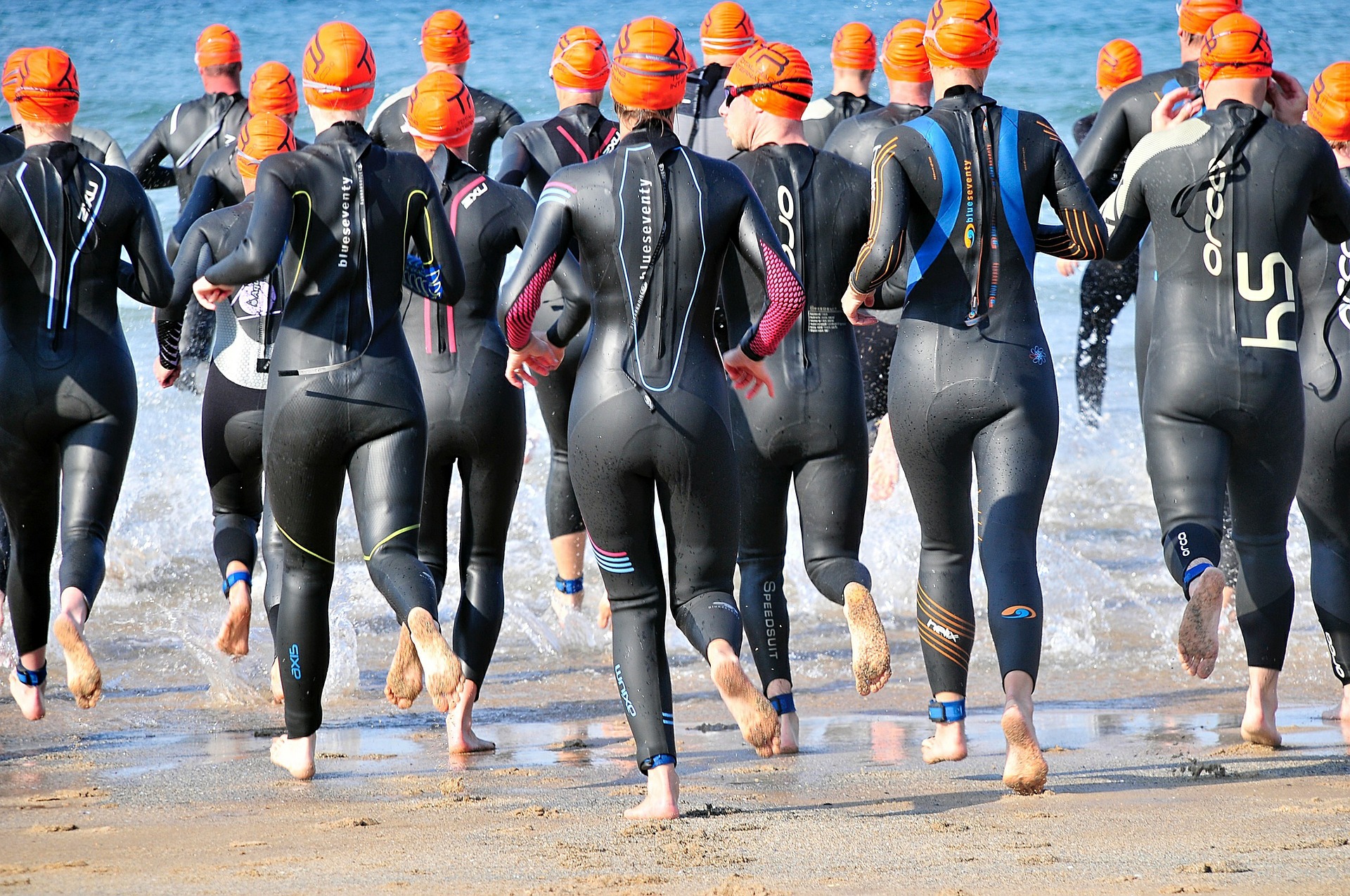 The Herbalife Bali International Triathlon attracts more competitors every year. Image by Russell Holden on Pixabay.
The Herbalife Bali International Triathlon attracts more competitors every year. Image by Russell Holden on Pixabay.
The use of sports facilities by the local community before and after events is also an important factor behind development, and in this sense it is a long-term marketing investment, especially when seen from the perspective of encouraging local talent.
Building stadiums - building a destination
A recent article in Nusa Bali reported that the Regency of Badung is planning to build two international standard sports stadiums; one of them is in Mengwi, in Tabanan, which is a renovation of an existing facility. According to reports, the plan is to expand the current stadium from 5-hectares to 10-hectares of land in time for Porprov 2021 - Indonesia's provincial sports festival, which Badung is slated to host.
The other, more ambitious plan is in Tanjung Benoa, and will cover some 50-hectares of land. The development will include facilities such as a national stadium with a capacity of 55,000 seats, an indoor stadium with a capacity of 12,000 seats, an aquatic stadium with a capacity of 6,000 seats, a water sports center, the Badung Sport Hub Museum and Library, Skate Park and Theater, as well as shopping centers and restaurants.
There is speculation as to where this might be, with some observers suggesting it will use the much disputed mangrove reclamation area.
Badung Regent Giri Prasta however, has stressed that he will make every effort to develop Bali's Sport Tourism potential and, according to local newswires has instructed the Department of Public Works and related agencies to increase the number of sports venues both at the sub-district and village levels.
 Bali United's stadium in Gianyar regularly attracts more than 20,000 fans to home games. Image by Tasnim17 on Wikimedia Commons.
Bali United's stadium in Gianyar regularly attracts more than 20,000 fans to home games. Image by Tasnim17 on Wikimedia Commons.
From surfing to soccer
Bali is already host to a number of international sporting events, particularly surfing. Gapura Bali reported recently on this year's World Surfing League Champions Tour, held at Keramas Beach in Gianyar, which attracted competitors from Australia, North America, South Africa, Brazil, Hawaii and France.
It is interesting to note that tourism began with surfers in Bali. According to IndoSurf Life, it was "the launch of the classic surf film Morning of the Earth in 1972, with its depiction of the mythical wave at Uluwatu, (which) opened the floodgates of surf tourism in Bali."
But the surfing niche has its limitations. More people will watch a football match than a surfing competition and this is indicative of how Bali's tourism industry is evolving. In recent years Bali has gone beyond surfing and moved into other sports; marathons, triathlons, cycling and football are now as much a part of the island's sporting scene as surfing.
Local football team, Bali United for example, have a significant following and regularly fill their 22,000 seat stadium in Gianyar for home games. They recently also became the first professional football team in Southeast Asia to go public and listed on Indonesia's stock exchange. According to CNN Indonesia, this was an immediate success as their stock "soared 69.14-percent to IDR 296-per share at the opening of its first trade." The initial public offering price was set at IDR 175-per share. The result? - more exposure, bigger names, more fans and more money for the club and Bali.
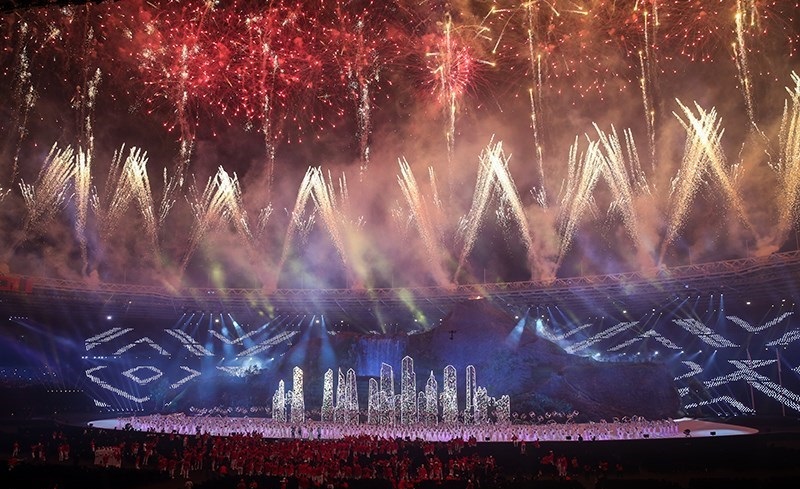 Opening Ceremony of the 2018 Asian Games Jakarta-Palembang. Image by Tasnim17 on Wikimedia Commons.
Opening Ceremony of the 2018 Asian Games Jakarta-Palembang. Image by Tasnim17 on Wikimedia Commons.
What's the bigger picture?
Developing destinations is key and President Jokowi's initiative to develop "10 New Bali's" is central to this. Each one of these designated destinations has its own story to tell, from the Batak tribes of the world's largest volcanic lake at Toba to the world-famous dragons of Komodo and the world's first MotoGP street circuit in Lombok's Mandalika.
But it is Indonesia as a whole that is also being pitched as a sports destination. The country successfully hosted the 2018 Asian Games in Jakarta and Palembang, and according to the BBC the event attracted around 12,000-athletes from 45-nations who competed across 60-different sporting disciplines, most of which were exposed to TV audiences across the region and the world.
The Olympics could be next. Indonesia has already made a formal bid to host the 2032 Olympic and Paralympic Games following the successful handling of the Asian Games, which is the world's second biggest multi-sport event behind the Olympics say The Jakarta Post. And if the bid was to be successful it could mean events being held across the country along with massive investment and developments along the way.
 Bali hosts the MayBank Bali Marathon and the International Night Run. Image by RUN 4 FFWPU on Pexels.
Bali hosts the MayBank Bali Marathon and the International Night Run. Image by RUN 4 FFWPU on Pexels.
Paradigm shift
The ASEAN Post is reporting that the cost to host the 2020 Olympics in Japan is likely to exceed USD 25-billion. This does not include road, rail, airport, and hotel infrastructure, which often cost more than the Games itself.
With that kind of investment and with the long-term implications of developing Sport Tourism destinations, Bali could be on the cutting edge of a paradigm shift and a new era of opportunity. This may have a profound impact on the island's tourism industry in general as it could steer it away from its current direction of becoming Asia's Ibiza party island to a much more focused destination where health and well-being are key characters in its evolving story.
Sources: World Financial Review, Nusa Bali, Radar Bali, Bali Post, Gatra, CNN Indonesia, IndoSurf Life, BBC, The Jakarta Post, The ASEAN Post
Similar to this:
World surfing championship in Bali helps develop sport tourism
Bali needs holistic approaches to continue positive economic growth
Medical tourism and luxury healthcare set to take off in Bali

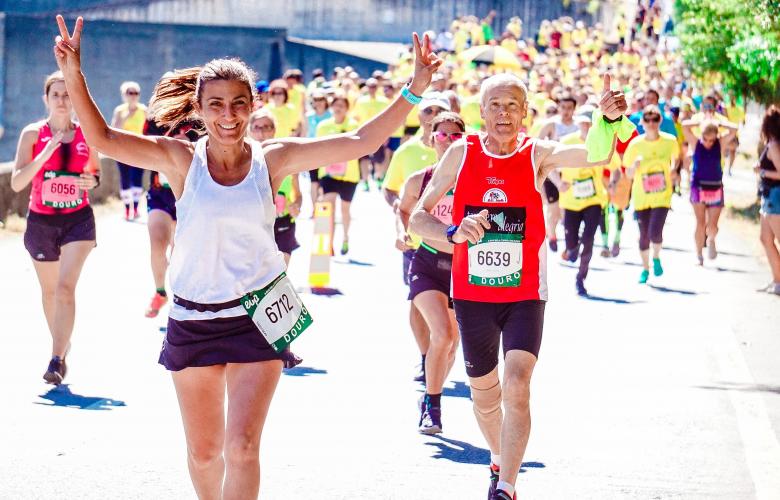
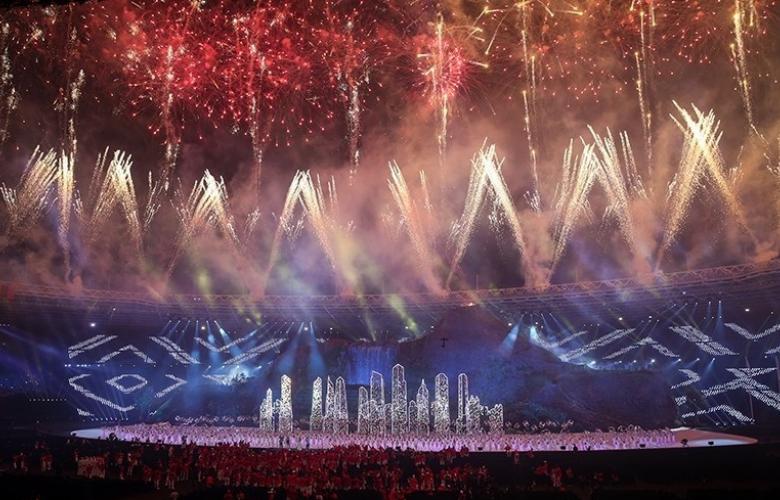

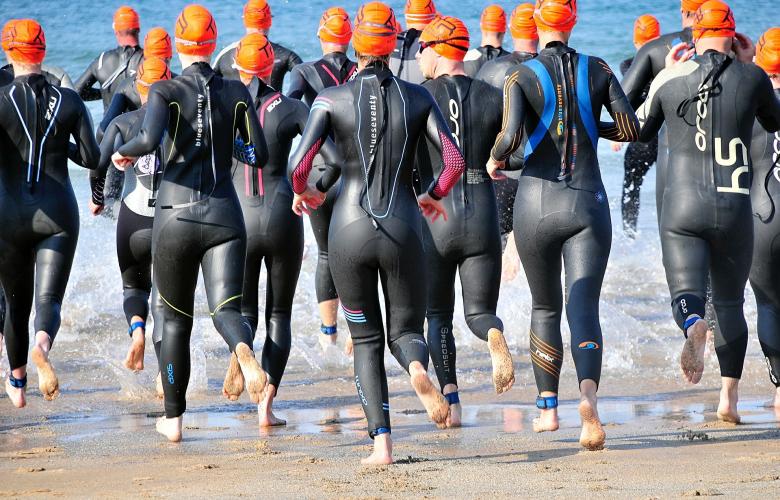
 The Herbalife Bali International Triathlon attracts more competitors every year. Image by Russell Holden on Pixabay.
The Herbalife Bali International Triathlon attracts more competitors every year. Image by Russell Holden on Pixabay. Bali United's stadium in Gianyar regularly attracts more than 20,000 fans to home games. Image by Tasnim17 on Wikimedia Commons.
Bali United's stadium in Gianyar regularly attracts more than 20,000 fans to home games. Image by Tasnim17 on Wikimedia Commons. Opening Ceremony of the 2018 Asian Games Jakarta-Palembang. Image by Tasnim17 on Wikimedia Commons.
Opening Ceremony of the 2018 Asian Games Jakarta-Palembang. Image by Tasnim17 on Wikimedia Commons. Bali hosts the MayBank Bali Marathon and the International Night Run. Image by RUN 4 FFWPU on Pexels.
Bali hosts the MayBank Bali Marathon and the International Night Run. Image by RUN 4 FFWPU on Pexels.


